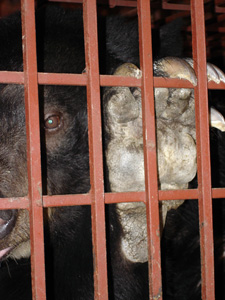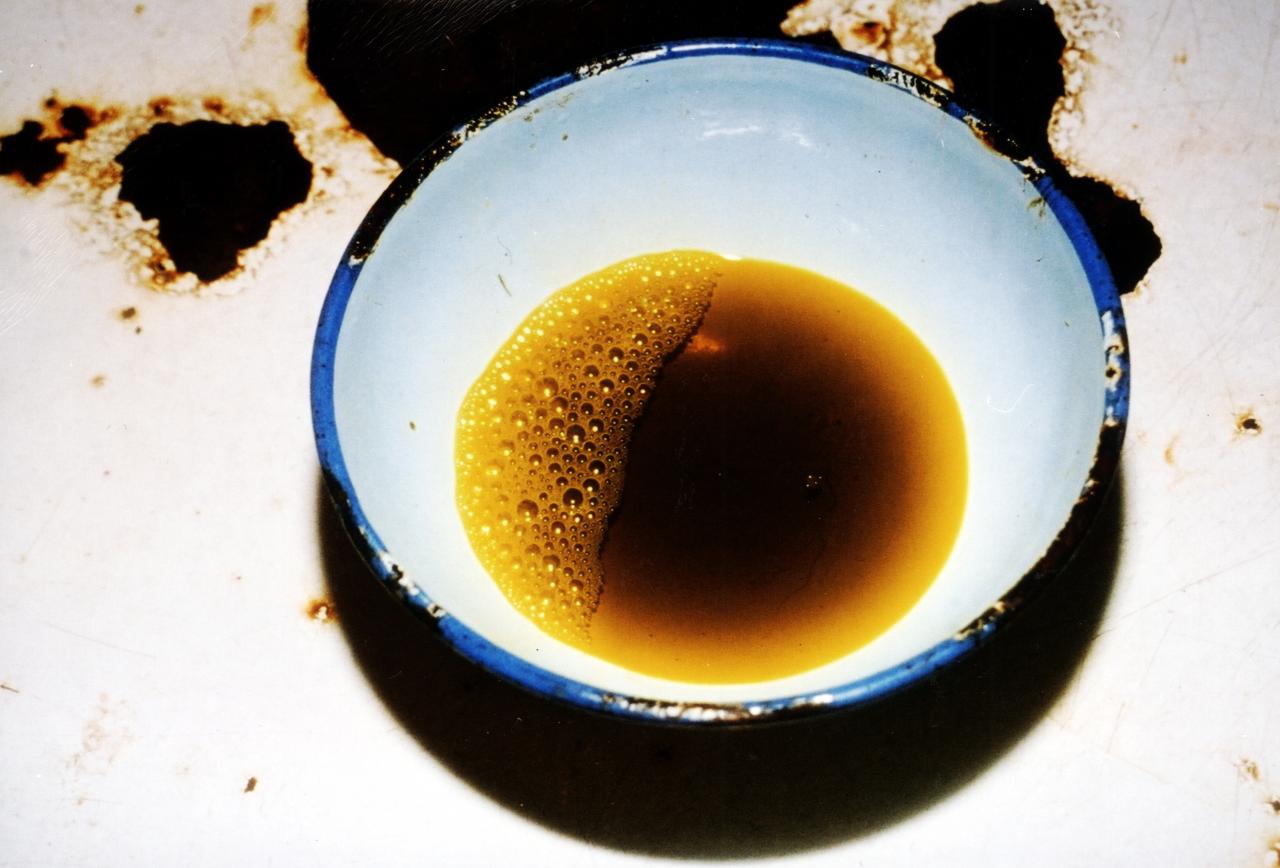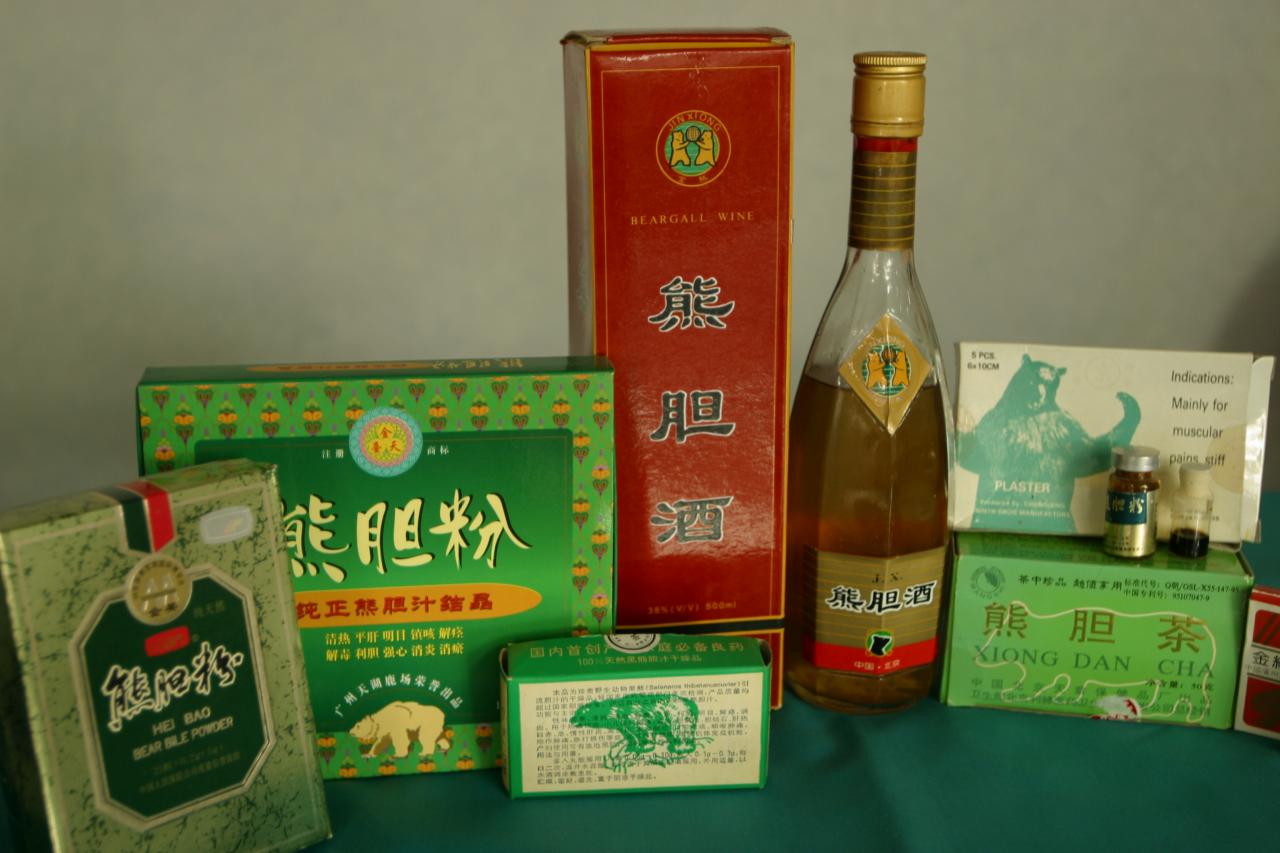|
|
|
|
HerbalEGram: Volume 7, Number 3, March 2010
WSPA Launches New Campaign to Help
End Bear Farming in Asia
|
Thousands of bears in Asia are cruelly confined to bear farms, facilities at which they are kept in tiny cages and their bile routinely and painfully extracted for medicinal use. Various animal protection organizations have lobbied for years to end the practice  of bear farming, including the World Society for the Protection of Animals (WSPA, London, UK). WSPA launched a new campaign this month to bring greater global awareness to bear farms and to persuade bear farming nations that the practice is detrimental to the traditional Asian medicine industry’s prospects for growth in Western markets.
WSPA has developed a new webpage that consumers and practitioners can use for requesting information on whether the Traditional Chinese Medicine (TCM) products that they buy are produced by Chinese companies involved with bear farming.1
“Herbal medicine practitioners and users in the United States might unintentionally be providing economic support to companies that make and sell medicines containing bear bile,” said Chris Gee, WSPA global wildlife programs manager (e-mail, January 27, 2010). Gee explained that there are many manufacturers in China who produce patent medicines containing bear bile, although these products typically represent a small portion of the companies’ product lines. Bear bile products are generally intended for domestic consumers, but the companies frequently sell a range of other products within US markets.
The new WSPA webpage educates viewers about the cruel and unnecessary practice of bear farming and invites them to send pre-written, customizable electronic letters to US retailers of Chinese-made TCM products. Web users are first asked to provide an e-mail address, so that contacted retailers and wholesalers will be able to send a response, before being taken to the form letter. The webpage provides a list of 13 major US retailers that consumers/practitioners may contact, or they may add e-mail addresses for unlisted retailers. In these letters, retailers are asked to comment on whether their Chinese suppliers produce any bear bile products. The e-letters include a link through which contacted retailers will be able to learn more about bear farming and obtain a template letter (in English or Chinese) that they can use when contacting Chinese companies about their bear bile policies. Those consumers and practitioners who send e-letters to US retailers will be able to post the retailers’ responses to the webpage.
WSPA ultimately plans to post on its website a list of US retailers who have agreed to stop selling medicines produced by Chinese companies that manufacture bear bile medicines, as well as a list of Chinese companies that pledge to no longer produce bear bile medicines or express that they never did so. If any companies make such a pledge and are found to violate that agreement, such information will also be noted on the website.
“In a WSPA-commissioned poll, over half of all US TCM users and potential users surveyed indicated that they would stop buying all products from any company that makes bear bile medicine,” said Gee. “We hope that in hearing these messages first from their customers (by which we mean US retailers speaking on behalf of the many TCM practitioners and users who send inquiries to the retailers as part of our campaign), Chinese companies will be given an opportunity to view this in simply business terms and to solve the issue themselves.”
 Bear farms typically trap bears in small cages with little room for movement.1,2 In China and Vietnam, farmers extract bile by inserting catheters or hypodermic needles into the bears’ gallbladders, or they carve a hole into the bears’ abdomen and gallbladder, allowing the bile to drip out into basins under the bears’ cages. Both the close confinement and bile extraction are clearly painful to the bears, as the animals often show signs of distress and resort to biting or banging their heads against their cages. Bears typically spend around 10 years trapped in these cages, many enduring daily bile extraction. In South Korea, it is illegal to extract bile from living bears, but bears can be raised for several years and then slaughtered for their gallbladders. Bear farms typically trap bears in small cages with little room for movement.1,2 In China and Vietnam, farmers extract bile by inserting catheters or hypodermic needles into the bears’ gallbladders, or they carve a hole into the bears’ abdomen and gallbladder, allowing the bile to drip out into basins under the bears’ cages. Both the close confinement and bile extraction are clearly painful to the bears, as the animals often show signs of distress and resort to biting or banging their heads against their cages. Bears typically spend around 10 years trapped in these cages, many enduring daily bile extraction. In South Korea, it is illegal to extract bile from living bears, but bears can be raised for several years and then slaughtered for their gallbladders.
Bear bile has been used within TCM to treat fevers and inflammation, liver disorders, convulsions and spasms, ophthalmological disorders, and various other conditions.3 For the past few decades, this bile has primarily been obtained through Asian bear farms. It is estimated that approximately 12,000 endangered Asiatic black bears are confined to these farms.1
Many animal protection groups, traditional medicine associations, herbalists, and others do not consider bear bile a necessary medicinal ingredient, particularly since other animal (i.e., pig and cow gallbladders), herbal, and synthetic alternatives are readily available. WSPA published a report in 2005 listing numerous herbs  considered to have some of the same indications as bear bile. 4 For example, that report noted that, like bear bile, Lobelia chinensis and Hedyotis diffusa (syn. Oldenlandia diffusa) are used for “clearing heat and detoxifying,” Gentiana spp. is used for “clearing liver fire,” and Lycium spp. and Ligustrum lucidum are taken to “brighten eyesight through nourishing the liver.” (A reviewer of this article, however, noted that similar category of action may not necessarily be sufficient cause for selecting a replacement. The reviewer noted that ursodeoxycholic acid [UDCA], the active compound in bear bile, may have other analogues. Experienced practitioners may therefore choose a replacement based on other factors.)
Since releasing its report, WSPA has been encouraging traditional medicine groups worldwide to support a statement saying that there are good herbal alternatives to bear bile, and 71 traditional Asian medicine associations from various countries have already expressed their support.
WSPA has played a significant role in helping the phase out of bear farming in Vietnam, where the practice is technically illegal. The organization has assisted Vietnam’s Forest Protection Department in microchipping all bears in the country’s bear farms, to try to ensure that new bears do not enter the industry and to punish those found breaking the law. WSPA has also partnered with the organization Education for Nature Vietnam (ENV) in funding work to assist the public in reporting illegal activity, such as bear bile advertisements and suspicious movement of bears. WSPA works with ENV and other animal protection organizations on the Vietnam Bear Task Force; members include Animals Asia, Free the Bears, and Wildlife at Risk. WSPA is increasingly working to end bear farming activities in China and South Korea, as well.
With its new online campaign, WSPA has opened an avenue for the US public to easily and freely contribute to the cause of ending bear farming. “Our goal is—with the help of the market power of TCM patent medicine buyers in the US—to give US TCM retailers and Chinese TCM exporters a positive incentive to do the right thing,” said Gee.
—Courtney Cavaliere
Photo captions in order of appearance:
1) Bear in cage at a farm in Ha Tay province. ©2010 WSPA.
2) Bowl of recently-extracted bear bile. ©2010 Animals Asia Foundation.
3) Bear bile products.©2010 Animals Asia Foundation.
References
1. Help End Bear Farming. World Society for the Protection of Animals website. Available at: www.endbearfarming.org/tcmaction. Accessed January 27, 2010.
2. Bekoff M. A bile business. New Scientist. 2009;202:2706.
3. Gabriel GG. Bears. In: Call E. Mending the Web of Life. Silver Spring, MD and Yarmouth Port, MA: American Herbal Products Association and International Fund for Animal Welfare; 2006:81-92.
4. World Society for the Protection of Animals. Finding Herbal Alternatives to Bear Bile [report]. London, UK: WSPA; 2005. |
|
|
|
|
|
|
|